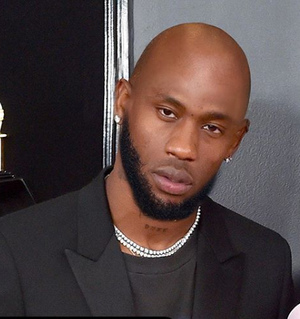 Fella
FellaI already said that the production of a film can be “problematic” (although I wouldn’t use that word) but once the film is made and it becomes an abstraction like art very much is—then the conversation shifts to its merit as art rather than a breakdown of the ethics that went into it. Cannibal Holocaust is great, but the animal killings in it are obviously morally repulsive. However that fact doesn’t go into my evaluation of it as a film. The art will outlive that context we’re applying to it.
One thing I don't understand here is why morality and ethics should be thrown out in critical evaluation due to them shifting throughout history, but you describe 'the merits of art' as if they are steadfast and unchanging.
There are works that have resonated for thousands of years, but there are also countless painters, playwrights and musicians who were considered excellent in their time, who history has largely forgotten, similarly there were artists unappreciated in their time who only found notoriety after their death. Popular music is an interesting case study for this, 1911 saw the song Alexander's Ragtime Band sweep the nation with an unprecedented dance craze, while now it seems like a totally alien work that we no longer have the framework to enjoy.
I'm not saying that you should a***yse films differently, each to their own, but to dismiss ethical evaluations on the grounds that our ethical frameworks may change seems odd, it's looking at art in a way that owes a debt to a future we don't (and may never) live in, and so may other aspects of how we evaluate art are subject to change as well.
In the end, someone's opinion of art is down to personal reaction, but that itself is influenced by their own surrounding cultural context, I don't personally understand Japanese classical music at all, but it clearly resonates a lot over there, they have an entirely different framework for looking at it, the merits of art are also tied to cultural contexts that can change over time.
I'm not necessarily disagreeing with you here, I also factor what I consider to be a work's artistic merits over its morality when evaluating art. I don't think it's useful to incorporate the fact that Klaus Kinski was a horrible man who sexually abused his own daughter into a***ysis of Herzog's films, for example. Certain things are too far for me, however, I wouldn't consider the animal abuse in Cannibal Holocaust to be an abstraction, yes it now exists as a celluloid object, but it's a record of a real event that's so horrible that I can no longer evaluate the film objectively. That aside, what I'm getting at here is that while ignoring morality and ethics in film a***ysis is a totally legitimate lens, the justification that our contemporary ethics may shift in future and thus should be ignored doesn't make much sense when you consider how changeable so many of the other criteria we use to evaluate art are.
 Fries
FriesOne thing I don't understand here is why morality and ethics should be thrown out in critical evaluation due to them shifting throughout history, but you describe 'the merits of art' as if they are steadfast and unchanging.
There are works that have resonated for thousands of years, but there are also countless painters, playwrights and musicians who were considered excellent in their time, who history has largely forgotten, similarly there were artists unappreciated in their time who only found notoriety after their death. Popular music is an interesting case study for this, 1911 saw the song Alexander's Ragtime Band sweep the nation with an unprecedented dance craze, while now it seems like a totally alien work that we no longer have the framework to enjoy.
I'm not saying that you should a***yse films differently, each to their own, but to dismiss ethical evaluations on the grounds that our ethical frameworks may change seems odd, it's looking at art in a way that owes a debt to a future we don't (and may never) live in, and so may other aspects of how we evaluate art are subject to change as well.
In the end, someone's opinion of art is down to personal reaction, but that itself is influenced by their own surrounding cultural context, I don't personally understand Japanese classical music at all, but it clearly resonates a lot over there, they have an entirely different framework for looking at it, the merits of art are also tied to cultural contexts that can change over time.
I'm not necessarily disagreeing with you here, I also factor what I consider to be a work's artistic merits over its morality when evaluating art. I don't think it's useful to incorporate the fact that Klaus Kinski was a horrible man who sexually abused his own daughter into a***ysis of Herzog's films, for example. Certain things are too far for me, however, I wouldn't consider the animal abuse in Cannibal Holocaust to be an abstraction, yes it now exists as a celluloid object, but it's a record of a real event that's so horrible that I can no longer evaluate the film objectively. That aside, what I'm getting at here is that while ignoring morality and ethics in film a***ysis is a totally legitimate lens, the justification that our contemporary ethics may shift in future and thus should be ignored doesn't make much sense when you consider how changeable so many of the other criteria we use to evaluate art are.
Nicely elucidated
 also I can't wait to use the "I don't have the framework to enjoy this" excuse
also I can't wait to use the "I don't have the framework to enjoy this" excuse Fries
FriesOne thing I don't understand here is why morality and ethics should be thrown out in critical evaluation due to them shifting throughout history, but you describe 'the merits of art' as if they are steadfast and unchanging.
There are works that have resonated for thousands of years, but there are also countless painters, playwrights and musicians who were considered excellent in their time, who history has largely forgotten, similarly there were artists unappreciated in their time who only found notoriety after their death. Popular music is an interesting case study for this, 1911 saw the song Alexander's Ragtime Band sweep the nation with an unprecedented dance craze, while now it seems like a totally alien work that we no longer have the framework to enjoy.
I'm not saying that you should a***yse films differently, each to their own, but to dismiss ethical evaluations on the grounds that our ethical frameworks may change seems odd, it's looking at art in a way that owes a debt to a future we don't (and may never) live in, and so may other aspects of how we evaluate art are subject to change as well.
In the end, someone's opinion of art is down to personal reaction, but that itself is influenced by their own surrounding cultural context, I don't personally understand Japanese classical music at all, but it clearly resonates a lot over there, they have an entirely different framework for looking at it, the merits of art are also tied to cultural contexts that can change over time.
I'm not necessarily disagreeing with you here, I also factor what I consider to be a work's artistic merits over its morality when evaluating art. I don't think it's useful to incorporate the fact that Klaus Kinski was a horrible man who sexually abused his own daughter into a***ysis of Herzog's films, for example. Certain things are too far for me, however, I wouldn't consider the animal abuse in Cannibal Holocaust to be an abstraction, yes it now exists as a celluloid object, but it's a record of a real event that's so horrible that I can no longer evaluate the film objectively. That aside, what I'm getting at here is that while ignoring morality and ethics in film a***ysis is a totally legitimate lens, the justification that our contemporary ethics may shift in future and thus should be ignored doesn't make much sense when you consider how changeable so many of the other criteria we use to evaluate art are.
Very interesting points, but all I’ll say to keep things short is that those other criteria’s (while changing themselves) are at least engaging with the material on its own terms rather than something outside of itself. Also even if we no longer have the framework to enjoy something—I think it’s worth trying to wrap our heads around.
 guetfa
guetfacare to explain how ?
every one of scorcese movies ends pretty unceremoniously..
Everyone loves it for the wrong reasons like Fight club. So many hustle culture memes with images of that movie
 ragedsycokiller
ragedsycokillerEveryone loves it for the wrong reasons like Fight club. So many hustle culture memes with images of that movie
Dark Knight too :/
 Marble
MarbleImagine having to see the cookie cutter: “bad man needs to go to jail for life and lose everything” getting chewed out for you to see the main character as a bad person
But reality we see is that the general audience does need that lol. Most of those films mentioned are only remembered for the taboo subject and not the lesson
 Fella
FellaVery interesting points, but all I’ll say to keep things short is that those other criteria’s (while changing themselves) are at least engaging with the material on its own terms rather than something outside of itself. Also even if we no longer have the framework to enjoy something—I think it’s worth trying to wrap our heads around.
I agree with you that meeting a work of art on its own terms is the ideal way to criticise something, too often, especially today, people criticise art for what it's not, or how it failed to be what they wanted it to be, going beyond reasonable qualitative assessments like 'the soundtrack was too intrusive', instead arguing that characters in the plot should have behaved in nicer ways etc.
Likewise, a work of art that was borne of a now-foreign cultural context benefits immensely from researching its significance at the time. I'm all in favour of not judging past works by current standards, I think Othello is one of Welles's best films, but he's in blackface the whole time, something that would obviously be condemned today.
To be clear, I'm not saying that moral judgement belongs in academic a***ysis of art, it would be fairly useless for all essays on 'problematic' pieces to contain endless disclaimers about how we thought differently then and now know better. I may be misreading you here, but it seems like you're arguing against the moral judgement of cinema in any context, even to the level of personal grievance, which I can't really agree with. All reactions to cinema arise from human sentiment, and I don't think it's fair to single out one particular response as invalid.
Given that we're agreed on the fact that frameworks of all kinds shift with time, outside of formal film a***ysis, what makes the subjective reaction of 'This is a transcendent work of art' any less valid than 'This is offensive and I don't want to see it'? Both are reactions to the work that inevitably arise from the viewer's cultural context. I doubt Tarkovsky would resonate as much with me if not for my personal religious beliefs. Similarly, when I watched The Birth of a Nation, despite the first half's obviously racist thesis and moments of egregious racism, I could see Griffith's undeniable directorial skill on display, the Lincoln assassination sequence is a masterclass. When the second half began however, which is known as where the racism really ramps up, I genuinely had to stop watching at a scene where a white actress in blackface, playing a Southern housemaid, tells a white actor in blackface, playing a Northern freed slave that he's being uppity and that he's still 'low down black trash' even if he's a free man with ambitions. (The entire thesis of the scene is that Northern freed slaves, despite their smart suits and education, were only capable of pretending at being civilised, while the good Southern former slaves knew their place, that their blackness would be an ever-present obstacle to civilisation, and they shouldn't aspire to more).
Something about it felt deeply wrong in a way that movies barely ever do for me, and I just couldn't stomach it, I couldn't evaluate the craft because the content was just too repulsive for me, it was like watching a propaganda film made by Confederates during the Civil War, something that was outwardly promoting a rotten, hateful message, and this intent seemed part and parcel of the work itself, not something outside of it.
I wouldn't judge someone for not taking such offense to the film, but for me that was a limit. I realise that we're in an era where people evaluate art on a moral level before any formal factors, oftentimes misconstruing the work and believing that depiction = endorsement, but I wouldn't argue blanketly against moral reactions to art, not every gut instinct has to be 'worked through' in order to fully appreciate an artwork, people will inevitably take objection to certain content. I get the impulse to say 'to hell with it all' in an overly-moralistic critical landscape, but I think moral objection is a valid reason to dislike something, not everything has to be for everyone.
To use an example you mentioned, I think a***ysing the American Pie movies relative to their gender politics, while not something I'd spend my free time on, certainly serves a purpose in evaluating popular media's shifting attitudes to gender and sex. Whether it's an oversaturated angle to take, or whether it's representative of a culture war that you find tiresome, I wouldn't write it off as totally useless. I wouldn't even really consider that as an example of morality superseding judgement of the work itself, the movies are about gender and sex, they're products of a specific cultural moment, I can't think of a more interesting angle to take on them, however I do agree that this is a somewhat overused a***ytical lens that ties in well with very clickable contemporary hot-button issues.
What I'm trying to say here is that, while moral objections don't really have a place in academic film criticism, it's unrealistic to take issue with people having moral objections that prevent them from engaging with artwork, the irrational weeping at a piece that moves you for reasons beyond the intellect comes from the same place as the sickness in your stomach that makes you want to leave the room. I don't think it's a fair assessment of human emotion to problematise one of those responses.
There are issues within that though, I'm not Asian, but I know Asian people who wouldn't enjoy certain older movies that I like because of the use of stereotypes, something that feels personally insulting to them, I'll never fully understand what that feels like, but I know that it makes them uncomfortable. On the other hand, if someone told me they didn't watch Harry Potter because they felt like it promoted witchcraft, I wouldn't take that so seriously, despite that being their subjective moral judgement, which is a problem! Who decides the validity of moral objections? I get what you mean about their inevitable shifting subjectivity, but in a practical sense, I'm not sure any good can come from insisting that people engage with works that actively repulse them. I wouldn't ask a gay guy to sincerely engage with Buju Banton's 'Boom Bye Bye' for its artistic merit, for example. I understand the reaction against people completely writing off artworks for moral reasons, but I think that you also have to factor in the role of subjective experiences beyond our own scope in how people perceive art, none of us can really be an unblemished objective observer, we all carry our own biases into the cinema/gallery one way or another, and even if people online are being pretty annoying about their issues with media, it doesn't mean that their feelings are always an artificial response from consuming too much moralistic criticism.
I agree that online film culture in particular is rife with people who are obsessed with whether a film is 'problematic' or not, to the detriment of all other a***ysis, but, to use the example of one of this board's most hotly-discussed movies, to invalidate the concerns of Asian audience members who felt discomfort with Licorice Pizza (I movie I enjoyed and was not offended by) feels like throwing the baby out with the bathwater. To clarify, I'm not saying that you're doing that, but the dismissal of those criticisms of that film seems like a logical application of your approach to morality in film criticism.
 ragedsycokiller
ragedsycokillerEveryone loves it for the wrong reasons like Fight club. So many hustle culture memes with images of that movie
And now Matrix too
 Fries
FriesI agree with you that meeting a work of art on its own terms is the ideal way to criticise something, too often, especially today, people criticise art for what it's not, or how it failed to be what they wanted it to be, going beyond reasonable qualitative assessments like 'the soundtrack was too intrusive', instead arguing that characters in the plot should have behaved in nicer ways etc.
Likewise, a work of art that was borne of a now-foreign cultural context benefits immensely from researching its significance at the time. I'm all in favour of not judging past works by current standards, I think Othello is one of Welles's best films, but he's in blackface the whole time, something that would obviously be condemned today.
To be clear, I'm not saying that moral judgement belongs in academic a***ysis of art, it would be fairly useless for all essays on 'problematic' pieces to contain endless disclaimers about how we thought differently then and now know better. I may be misreading you here, but it seems like you're arguing against the moral judgement of cinema in any context, even to the level of personal grievance, which I can't really agree with. All reactions to cinema arise from human sentiment, and I don't think it's fair to single out one particular response as invalid.
Given that we're agreed on the fact that frameworks of all kinds shift with time, outside of formal film a***ysis, what makes the subjective reaction of 'This is a transcendent work of art' any less valid than 'This is offensive and I don't want to see it'? Both are reactions to the work that inevitably arise from the viewer's cultural context. I doubt Tarkovsky would resonate as much with me if not for my personal religious beliefs. Similarly, when I watched The Birth of a Nation, despite the first half's obviously racist thesis and moments of egregious racism, I could see Griffith's undeniable directorial skill on display, the Lincoln assassination sequence is a masterclass. When the second half began however, which is known as where the racism really ramps up, I genuinely had to stop watching at a scene where a white actress in blackface, playing a Southern housemaid, tells a white actor in blackface, playing a Northern freed slave that he's being uppity and that he's still 'low down black trash' even if he's a free man with ambitions. (The entire thesis of the scene is that Northern freed slaves, despite their smart suits and education, were only capable of pretending at being civilised, while the good Southern former slaves knew their place, that their blackness would be an ever-present obstacle to civilisation, and they shouldn't aspire to more).
Something about it felt deeply wrong in a way that movies barely ever do for me, and I just couldn't stomach it, I couldn't evaluate the craft because the content was just too repulsive for me, it was like watching a propaganda film made by Confederates during the Civil War, something that was outwardly promoting a rotten, hateful message, and this intent seemed part and parcel of the work itself, not something outside of it.
I wouldn't judge someone for not taking such offense to the film, but for me that was a limit. I realise that we're in an era where people evaluate art on a moral level before any formal factors, oftentimes misconstruing the work and believing that depiction = endorsement, but I wouldn't argue blanketly against moral reactions to art, not every gut instinct has to be 'worked through' in order to fully appreciate an artwork, people will inevitably take objection to certain content. I get the impulse to say 'to hell with it all' in an overly-moralistic critical landscape, but I think moral objection is a valid reason to dislike something, not everything has to be for everyone.
To use an example you mentioned, I think a***ysing the American Pie movies relative to their gender politics, while not something I'd spend my free time on, certainly serves a purpose in evaluating popular media's shifting attitudes to gender and sex. Whether it's an oversaturated angle to take, or whether it's representative of a culture war that you find tiresome, I wouldn't write it off as totally useless. I wouldn't even really consider that as an example of morality superseding judgement of the work itself, the movies are about gender and sex, they're products of a specific cultural moment, I can't think of a more interesting angle to take on them, however I do agree that this is a somewhat overused a***ytical lens that ties in well with very clickable contemporary hot-button issues.
What I'm trying to say here is that, while moral objections don't really have a place in academic film criticism, it's unrealistic to take issue with people having moral objections that prevent them from engaging with artwork, the irrational weeping at a piece that moves you for reasons beyond the intellect comes from the same place as the sickness in your stomach that makes you want to leave the room. I don't think it's a fair assessment of human emotion to problematise one of those responses.
There are issues within that though, I'm not Asian, but I know Asian people who wouldn't enjoy certain older movies that I like because of the use of stereotypes, something that feels personally insulting to them, I'll never fully understand what that feels like, but I know that it makes them uncomfortable. On the other hand, if someone told me they didn't watch Harry Potter because they felt like it promoted witchcraft, I wouldn't take that so seriously, despite that being their subjective moral judgement, which is a problem! Who decides the validity of moral objections? I get what you mean about their inevitable shifting subjectivity, but in a practical sense, I'm not sure any good can come from insisting that people engage with works that actively repulse them. I wouldn't ask a gay guy to sincerely engage with Buju Banton's 'Boom Bye Bye' for its artistic merit, for example. I understand the reaction against people completely writing off artworks for moral reasons, but I think that you also have to factor in the role of subjective experiences beyond our own scope in how people perceive art, none of us can really be an unblemished objective observer, we all carry our own biases into the cinema/gallery one way or another, and even if people online are being pretty annoying about their issues with media, it doesn't mean that their feelings are always an artificial response from consuming too much moralistic criticism.
I agree that online film culture in particular is rife with people who are obsessed with whether a film is 'problematic' or not, to the detriment of all other a***ysis, but, to use the example of one of this board's most hotly-discussed movies, to invalidate the concerns of Asian audience members who felt discomfort with Licorice Pizza (I movie I enjoyed and was not offended by) feels like throwing the baby out with the bathwater. To clarify, I'm not saying that you're doing that, but the dismissal of those criticisms of that film seems like a logical application of your approach to morality in film criticism.
I don’t mean to be disrespectful because you’re being fair and responding in good faith and this all incredibly interesting and worth considering, but this discourse is frankly exhausting and requires these extensive back n forth’s to truly get to what each other means. I’m not claiming that someone having an emotional response where they feel offended or alienated by a work is any less valid than claiming art is transcendent. I’m simply saying that it’s not something I personally find particular value in and don’t like engaging with those kinds of conversations to begin with. I’m not trying to dismiss any form of criticism, but we have to weigh which ones we find worth taking seriously. I’ll always gravitate more towards someone who approaches material on its own terms.
Lastly I do want to just say that I think you’re very much underestimating how much this part goes into many people’s feelings.
“Even if people online are being pretty annoying about their issues with media, it doesn't mean that their feelings are always an artificial response from consuming too much moralistic criticism”.
It reminds me of certain studies around trauma where the findings were how much of it can be negative contextual reframing projected upon you by an outside force and not an organic response towards an event or action.
@Fries another nice essay

Just wanna say I got no religious beliefs beyond being vaugely agnostic I guess and Tarkovsky still hits like a meteorite. Actually have a 7 ft carving of Satan in my living room that's apparently spooky enough that a few of my more religious family members won't step foot in my house lol.
 Elric
ElricThe General too
 just looking at your reviews. Busters character wasn't ideological, he just loved his train
just looking at your reviews. Busters character wasn't ideological, he just loved his train  but yeah wish his movie wasn't rooting for the south.
but yeah wish his movie wasn't rooting for the south.It’s interesting bc I recently saw Das Boot, which is, I think, the first movie I’ve seen shooting from the Nazi perspective. It wasn’t super explicitly anti-Nazi but I never thought about the movie being uncomfortable to watch bc of its perspective. It’s something about the nature of The General that put me off, perhaps bc it’s a confederate comedy and not a serious movie, but also, more importantly I think, and in agreement with you, because it is praising this side of the war. I’d call it a romantic vision, all the more troubling given the film’s proximity to the reconstruction era. How much these details impact your relationship to the film will vary, but I can’t avoid acknowledging them
 Einfinet
EinfinetIt’s interesting bc I recently saw Das Boot, which is, I think, the first movie I’ve seen shooting from the Nazi perspective. It wasn’t super explicitly anti-Nazi but I never thought about the movie being uncomfortable to watch bc of its perspective. It’s something about the nature of The General that put me off, perhaps bc it’s a confederate comedy and not a serious movie, but also, more importantly I think, and in agreement with you, because it is praising this side of the war. I’d call it a romantic vision, all the more troubling given the film’s proximity to the reconstruction era. How much these details impact your relationship to the film will vary, but I can’t avoid acknowledging them
Just boils down to the fact that political ideology is just about the last thing me or anybody watches a Buster Keaton film for. Also he only has one or two scenes in any of his films with very minor black face and none of them are mean spirited or racist beyond that.
Just happy to know my circle of film buff friends don’t do this. So I can go slither away and talk to them if this kind of thing ever rubs me the wrong way here.
 Fella
FellaJust happy to know my circle of film buff friends don’t do this. So I can go slither away and talk to them if this kind of thing ever rubs me the wrong way here.
good to have a safe space
 Fella
FellaI don’t mean to be disrespectful because you’re being fair and responding in good faith and this all incredibly interesting and worth considering, but this discourse is frankly exhausting and requires these extensive back n forth’s to truly get to what each other means. I’m not claiming that someone having an emotional response where they feel offended or alienated by a work is any less valid than claiming art is transcendent. I’m simply saying that it’s not something I personally find particular value in and don’t like engaging with those kinds of conversations to begin with. I’m not trying to dismiss any form of criticism, but we have to weigh which ones we find worth taking seriously. I’ll always gravitate more towards someone who approaches material on its own terms.
Lastly I do want to just say that I think you’re very much underestimating how much this part goes into many people’s feelings.
“Even if people online are being pretty annoying about their issues with media, it doesn't mean that their feelings are always an artificial response from consuming too much moralistic criticism”.
It reminds me of certain studies around trauma where the findings were how much of it can be negative contextual reframing projected upon you by an outside force and not an organic response towards an event or action.
That's a fair response, I definitely feel like I understand where you're coming from better now. It's certainly a topic that there's been no end of discussion about, but it's been good to discuss it here on a level that feels much more reasoned than the usual hyper-polarised clickbait format you usually get online, where each party cartoonises the other for an audience.
I realise this is a whole other can of worms, but I'm aware of those studies, and quite frankly can't see the use for them, I'm not sure what a society would look like that takes child sexual abuse less seriously on the grounds that many children don't actually understand what's happening at the time. You can certainly argue in favour of there being less Wayfair-type hysteria, but it's fundamentally an argument for treating child abuse less seriously than it's currently treated, which would be extremely unpopular.
You can make the case that people often don't suffer the trauma of what's happened to them until they're old enough to understand it in a world that treats child abuse as a particularly evil crime, but understanding the full extent of the events can impact how you perceive anything.
Say for example, you trip in the street, suffer particularly bad injuries, versus suffering those same injuries, but this time someone pushes you, for most people, this would lead them to be warier of going outside, they'd become more fearful, context can amplify suffering. It's a classic scary story framing, but imagine you've got a dog, you wake up one night and feel it licking your feet, you go back to bed, some time later you find out that your dog was actually downstairs at the time, some guy broke in and did that to you! You'd retroactively feel different about the situation. I don't think the findings of those studies are particularly revelatory, children too young to comprehend molestation often don't suffer trauma from the event until they're old enough to understand that an adult was taking advantage of that innocence for their own sexual gratification, it's the difference between someone knowing what happened and not knowing what happened.
That's not to mention the amount of behaviours that alert care workers to children being abused at home, and the intense fear reported by some children regarding their abusers for reasons that they may not be able to articulate, but certainly feel. There are so many people with particular sexual hang-ups and fears that they can't identify the source of until they realise what happened to them later in life, this stuff has an impact.
You can argue that a good amount of the suffering of abuse survivors is down to our culture surrounding it, and that by changing our response to it we'd be minimising suffering, but how would that practically work? Would prison sentences be reduced? Would we, one way or another, be telling victims of abuse to 'calm down'? It's just something that I don't see working.
I'm not saying you're defending child abusers, you're not, that's a bad-faith reading of what you're on about, but I don't see how the results of those studies can be applied in a way that doesn't involve going easier on them.
 Elric
Elric@Fries another nice essay

Just wanna say I got no religious beliefs beyond being vaugely agnostic I guess and Tarkovsky still hits like a meteorite. Actually have a 7 ft carving of Satan in my living room that's apparently spooky enough that a few of my more religious family members won't step foot in my house lol.
Oh yeah, by no means was I trying to imply that religion is a prerequesite for appreciating Tarkovsky, he's just the best to ever do it, but I definitely feel like my own beliefs impact my appreciation of him. What I'm getting at is that I really enjoy A Brighter Summer Day, but it wasn't until I watched it with the commentary on that I realised how much more I'd appreciate it if I fully understood the context, the commentator was explaining all kinds of ways that it relates to Taiwanese history that completely passed me by on a first watch. I'm not saying you should convert or anything to properly understand Andrei Rublev, but it's interesting how different cultures experience films in a different way, like how the French appreciated Jerry Lewis in a way that his fellow countrymen didn't.
 Fries
FriesThat's a fair response, I definitely feel like I understand where you're coming from better now. It's certainly a topic that there's been no end of discussion about, but it's been good to discuss it here on a level that feels much more reasoned than the usual hyper-polarised clickbait format you usually get online, where each party cartoonises the other for an audience.
I realise this is a whole other can of worms, but I'm aware of those studies, and quite frankly can't see the use for them, I'm not sure what a society would look like that takes child sexual abuse less seriously on the grounds that many children don't actually understand what's happening at the time. You can certainly argue in favour of there being less Wayfair-type hysteria, but it's fundamentally an argument for treating child abuse less seriously than it's currently treated, which would be extremely unpopular.
You can make the case that people often don't suffer the trauma of what's happened to them until they're old enough to understand it in a world that treats child abuse as a particularly evil crime, but understanding the full extent of the events can impact how you perceive anything.
Say for example, you trip in the street, suffer particularly bad injuries, versus suffering those same injuries, but this time someone pushes you, for most people, this would lead them to be warier of going outside, they'd become more fearful, context can amplify suffering. It's a classic scary story framing, but imagine you've got a dog, you wake up one night and feel it licking your feet, you go back to bed, some time later you find out that your dog was actually downstairs at the time, some guy broke in and did that to you! You'd retroactively feel different about the situation. I don't think the findings of those studies are particularly revelatory, children too young to comprehend molestation often don't suffer trauma from the event until they're old enough to understand that an adult was taking advantage of that innocence for their own sexual gratification, it's the difference between someone knowing what happened and not knowing what happened.
That's not to mention the amount of behaviours that alert care workers to children being abused at home, and the intense fear reported by some children regarding their abusers for reasons that they may not be able to articulate, but certainly feel. There are so many people with particular sexual hang-ups and fears that they can't identify the source of until they realise what happened to them later in life, this stuff has an impact.
You can argue that a good amount of the suffering of abuse survivors is down to our culture surrounding it, and that by changing our response to it we'd be minimising suffering, but how would that practically work? Would prison sentences be reduced? Would we, one way or another, be telling victims of abuse to 'calm down'? It's just something that I don't see working.
I'm not saying you're defending child abusers, you're not, that's a bad-faith reading of what you're on about, but I don't see how the results of those studies can be applied in a way that doesn't involve going easier on them.
I really wasn’t expecting to get into the whole child abuser aspect of it as that’s naturally really uncomfortable. I get that’s the basis of many of those studies, but they’re just an extreme example to highlight a larger idea. I simply brought it up to suggest that it’s worth having a little self awareness of the mechanics that lead to our responses or how it’s totally possible to elevate something beyond what it is to something much more harmful. I’d rather not take an abstraction and problematize it more than it ought to be leading to a worse case scenario for a wider group of people. I don’t want more people to feel worse when they engage with something. It’s similar to language and attempts to reclaim certain words. It’s a good thing when that’s possible. I remember I think it was the New York Times years back publishing an interesting piece on why attempts to slurify the R word were counter productive ultimately. Again I don’t want to get in the weeds on that in particular. Just another example of a broader idea. Culture is ultimately manufactured and it’s totally within the power of the institutions and influential people that dictate it to make certain aspects of it less painful.
 Elric
ElricJust boils down to the fact that political ideology is just about the last thing me or anybody watches a Buster Keaton film for. Also he only has one or two scenes in any of his films with very minor black face and none of them are mean spirited or racist beyond that.
Black face is funny if you’re not making fun of black people. The Marx Bros painting their face black to escape the cops at night had me laughing my ass off.
 internet buddy
internet buddyBlack face is funny if you’re not making fun of black people. The Marx Bros painting their face black to escape the cops at night had me laughing my ass off.
Lmao I’m not touching this, but respect the audacity.
 Okay Yeah
Okay YeahHate woke people
The right problematizes art more than so called “woke” people.
 Fella
FellaThe right problematizes art more than so called “woke” people.
Point me to the right equivalent of threads like this? (And I’m not even right)
